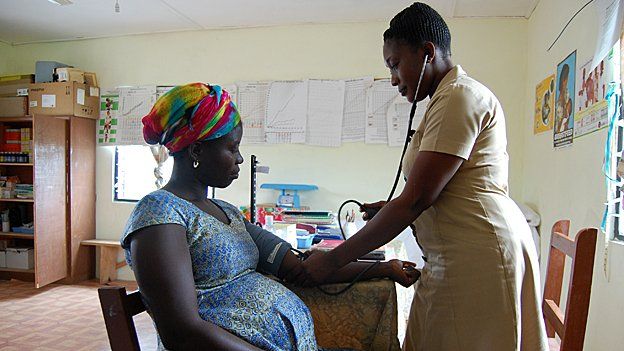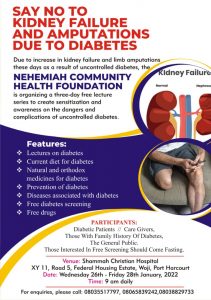Information and education gives us the necessary resources we need to improve our health. There are several activities that are usually taken for granted but when taken into consideration greatly improves our health and wellbeing. Below are some of these activities and behaviours to take note of to be better informed healthy individuals.
Adequate Child Spacing
It is also called inter-pregnancy interval. This basically refers to how soon after a prior pregnancy a woman becomes pregnant or gives birth again. There are many health risks associated with pregnancies placed closely together.
The standard interval is eighteen (18) months but WHO recommends a minimum of twenty-four(24) months between pregnancies. A longer interval is required if the pregnancy ended in caesarean section to avoid uterine rupture.
Short inter-pregnancy interval is associated with an increase in maternal mortality, still birth and child mortality. Also, it leads to uterine rupture and most often death of the mother and the baby.
Child spacing can be hindered by factors such as:
- Contraceptive failure.
- Attempt to complete the family before the onset of menopause
- Pressure from relatives
- Ignorance of the danger associated with short inter-pregnancy interval.
To achieve child spacing, the following should be taken into consideration:

- Family planning: included the following
- Natural family planning methods
- Breast feeding and extended breast feeding due to lactational amenorrhea
- Calendar method
- Billings method
- Napro Technology method etc.
- Artificial family planning method
- The use of contraceptives.
- Self discipline among the couple
- Natural family planning methods
Advantages of good child spacing include the following but are not limited to:
- The mother recovers fully before the next pregnancy
- The child is healthy and mature enough before the next baby comes
- Decrease in maternal and child mortality
- Reduces money spent in hospitals and medications
- Rest of mind for the father/husband.
Good Antenatal Care and Delivery
This is also known as pre-natal care. It is a type of preventive health care for pregnant women where regular checkups are conducted to prevent problems that are associated with childbirth. It is a form of continuing care until delivery. It can begin as early 8 weeks.

Antenatal care can be received at government owned hospitals, government-approved preventive hospitals, and government-approved maternity homes. Only midwives, general practitioners, consultant obstetricians and gynaecologists can conduct antenatal services.
During antenatal visits the several activities are carried out to maintain the health of the baby and mother as well as educate both mom and dad. Some of these activities are:
- Blood check for HIV, HbsAg, Blood group etc.
- Urine check for sugar and protein
- Health talk
- Physical examination of the expectant mothers
- Ultrasound evaluation of the baby
Administration of tetanus toxoid etc.
Immunization of Family Members
This is the process whereby people are protected against illness caused by infection with micro-organism. It is necessary for both infants and adults. It is encouraged to immunize babies from birth
Immunizations can save the life of the recipient. It is safe and effective. Other members of the family and community are protected when an individual gets immunized because this prevents the spread of diseases. The family saves time and money as well.
Avoiding Physical Inactivity
Physical inactivity is a bad lifestyle that promotes obesity and other health related risk. It increases with people doing sedentary work or old people that have retired either from business or government work.
When we exercise, the heart pumps blood faster preventing blood clots in the arteries that eventually cause stroke or heart attack. Exercise helps to improve our lung function and in gaseous exchange. It increases blood supply to the kidney thereby eliminating waste products from the body.
Exercise enables the muscle to metabolize glucose without insulin which helps in the control of diabetes and obesity. Mental exercises like playing of games or learning new things like learning to play the guitar, prolongs the life of brain cells and decreases the risk of Alzheimer’s disease and dementia.






